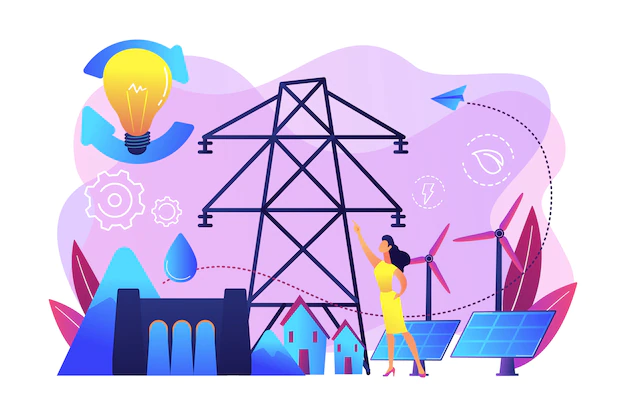The Western Area Power Administration (WAPA) is a federal agency within the United States Department of Energy. It was established in 1977 and is responsible for managing and operating a large portion of the federal transmission system that spans the western region of the United States. WAPA markets and delivers electricity generated from federal hydroelectric power projects,Wapa meaning as well as other renewable energy sources, across a wide geographic area.

WAPA’s primary responsibilities include:
- Transmission System Management: WAPA manages and maintains a network of high-voltage transmission lines and substations that transmit electricity from power plants to distribution systems and customers.
- Hydroelectric Power: The agency’s main focus is on hydroelectric power generated by federal water projects, including dams and reservoirs. It markets this power to various customers, ensuring its efficient and reliable distribution.
- Electricity Marketing: WAPA sells and delivers electricity to a diverse range of customers, including federal and state agencies, Native American tribes, municipalities, rural electric cooperatives, and public utilities.
- Renewable Energy: In addition to hydroelectric power, WAPA has been expanding its portfolio to include other renewable energy sources such as wind, solar, and geothermal power.
- Federal Partnerships: WAPA collaborates with other federal agencies, particularly the Bureau of Reclamation and the U.S. Army Corps of Engineers, to ensure the efficient and sustainable operation of federal water projects and associated power generation.
- Power Contracts: The agency negotiates and manages power purchase and transmission agreements with various customers, helping to Wapa meaning maintain a stable supply of electricity to its designated regions.
- Regional Offices: WAPA is divided into four regions—Rocky Mountain, Desert Southwest, Upper Great Plains, and Sierra Nevada. Each region is responsible for managing the transmission and power distribution within its designated area.

WAPA’s mission is to deliver reliable, cost-based electric power and related services to its customers, while also ensuring environmental stewardship and compliance with federal regulations. It plays a vital role in supporting the energy needs of the western United States and contributing to the development of clean and sustainable energy sources.
It’s responsible for operating and maintaining a large portion of the electric power transmission and distribution infrastructure in the western part of the United States. WAPA markets and delivers hydroelectric power generated from federal water projects, as well as other renewable energy sources, to utilities, Native American tribes, and other customers across its service area.
The agency plays a vital role in ensuring reliable and affordable electricity supply to a wide range of consumers in the western region of the United States. It is responsible for marketing and transmitting electricity from multi-use water projects, such as hydroelectric dams, across a 15-state region in the western part of the United States. WAPA’s mission is to ensure a reliable and cost-effective supply of electric power and energy to federal and non-federal customers
while also promoting responsible energy use and environmental stewardship. The agency operates and maintains a vast network of transmission lines and substations to deliver electricity to various customers, including federal agencies, municipalities, cooperatives, Native American tribes, and other entities.
